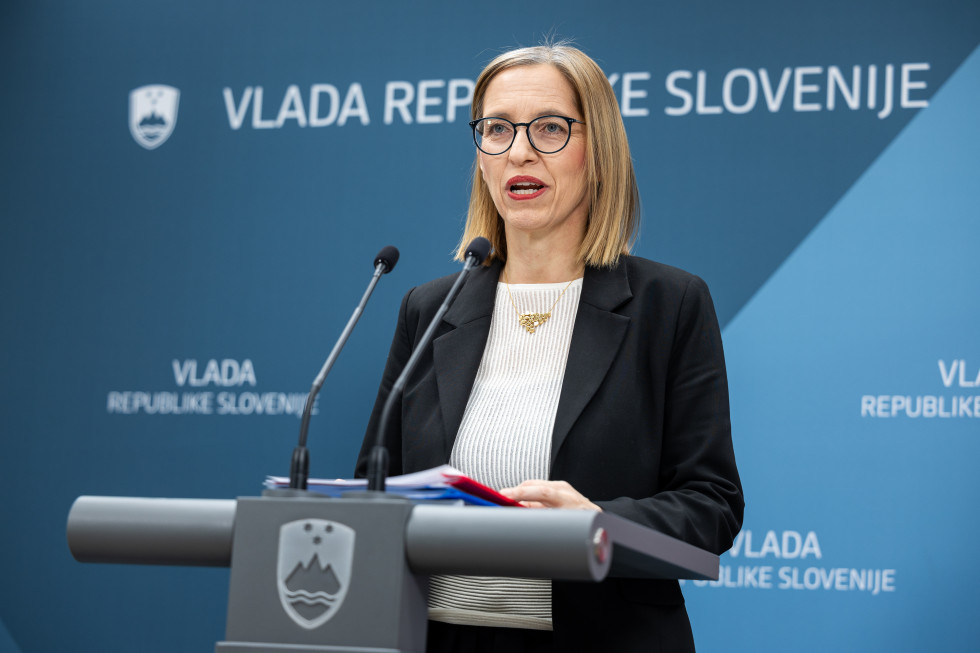90th regular session of the Government of the Republic of Slovenia
Government adopts the Decree on the compulsory health insurance service programme for 2024
The Government adopted the Decree on the compulsory health insurance service programme, the capacities required for its implementation and the amount of funding for services for 2024. The Decree focuses on reducing waiting times and improving accessibility for people waiting for their first examination at a specialist outpatient clinic. By introducing family medicine trainee clinics and establishing a new clinic standard, it also improves accessibility to personal doctors.
The Decree is based on three key objectives which ensure the accessibility of medical care, the quality of healthcare services and the financial sustainability of the healthcare system. In drafting the Decree, the Ministry of Health has taken into account more than 200 proposals received from the Association of Health Institutions of Slovenia and the Health Insurance Institute of Slovenia.
At the primary level, the Decree addresses the issue of people without a chosen personal doctor and promotes greater accessibility of personal doctors. To this end, it introduces 15 clinics run by family medicine trainees in their last year of training. The clinics will operate under the same conditions as the clinics run by family medicine specialists. In this way, access to a personal doctor will be ensured for an additional 16,000 people. The new clinic standard, which will connect the teams of family medicine clinics with the reference clinics, will improve medical care quality and accessibility and team work. A call for family medicine clinics to take on more patients, which will entitle them to funds to employ an additional registered nurse, is also planned for this year.
With this Decree, the Ministry of Health ensures better access to the first examinations at specialist clinics, with which patients enter the healthcare system. The Decree determines the minimum number of first examinations that a provider must carry out in a year and increases the payment for all first examinations by 30% to promote the provision of such examinations. Providers are eligible to a higher payment if they fulfil the set plan. If not, the Decree provides that a part of their programme may be withdrawn. Payment by outturn is envisaged for programmes that were so paid under last year's Decree, as well as for healthcare services for children and adolescents, services in gastroenterology, the programme of comprehensive rehabilitation of the blind and visually impaired, and all emergency services.
The Decree introduces a new method of processing waiting lists. A relative waiting factor or the ratio between the days of waiting and the longest admissible waiting time with regard to the level of urgency will be calculated. Based on this, a list of people whose waiting time has been exceeded the most will be made. The care will first be offered to those who have been waiting the longest in relative terms with regard to level of urgency. Providers will be given additional incentives for providing services to these patients.
The Decree also increases the independence of directors of public institutions in managing the programmes for which at least one person has been waiting longer than admissible. The Ministry thus trusts the providers to independently establish programmes for reducing waiting times. In implementing such programmes, the providers will be able to use all available staff and reward them as permitted by regulations.
In the coming period, the emergency medical assistance network will also be reorganised. By establishing satellite emergency centres, patients with acute illnesses will receive care quicker, which will relieve the burden on emergency centres intended for patients whose lives are at risk. The satellite emergency centres will be provided the technical equipment and staff required to provide quick and high-quality care to patients nearer to patients' homes.
The Decree also introduces a "meeting system" ensuring immediate, rapid response of ambulances and relieving the burden on out-of-hours doctors, who will only work in the field when the patient's condition so requires. They will carry out interventions together with the registered nurse in the emergency doctor's vehicle. This will improve the out-of-hours doctor's availability at the clinic.
Source: Ministry of Health


